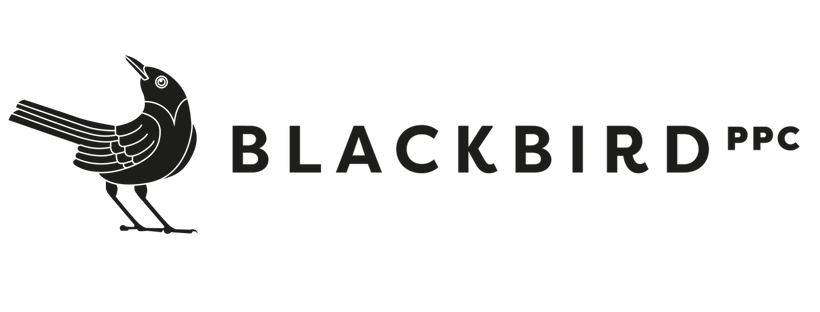Building a Better Digital Marketer: What Matters in 2024?
Clockwise from top left: Anna Seitz, Macy Lustig, Rishita Arora, and Rachel Trac
The changes swirling around the digital marketing landscape in 2024 are bound to be significant, but that’s not a foreign concept in an industry accustomed to adaptation.
With cookies about to crumble and AI infiltrating every platform, members of the Blackbird PPC team took a few minutes to reflect on the skills and training techniques most important in digital marketing in 2024. From first-year marketers to their managers to a 14-year industry veteran, we examine what goes into making a great digital marketer at Blackbird in the current digital climate.
Reflections from first-year digital marketers
Late last year, a new crop of Blackbirdies talked about the training that was getting them up to speed in their new roles. The same group of Account Associates (Macy Lustig, Rishita Arora, Anna Seitz, and Rachel Trac) chopped it up a few months later with insights on early skills, surprises, and challenges of their client work.
On the skills necessary to get traction:
Macy: Beyond knowledge of the platforms, I think organization and communication are the most important skills in my role. On a daily basis, I track performance and work on deliverables for several accounts, so prioritizing tasks efficiently has been a necessary skill.
Rachel: Coming into my role at Blackbird, I had a lot of experience with creatives and market analysis and thought I’d be using a lot of the same skills. That ended up not really being the case, instead, I’ve learned a lot more about what’s useful in building a powerful online media presence. Managing tasks such as keyword tailoring and strategizing budget allocation entails a significant level of responsibility and control. The support and training provided by the team has been invaluable in navigating these responsibilities effectively.
Rishita: Along with all the daily tasks, I’ve learned the most important thing now is being able to communicate and tell the story of what’s happening in the accounts, which means keeping a really close eye on cause and effect.
Anna: Beyond creativity and communication, you really need attention to detail, and Blackbird really trains us on that: catching mistakes, catching when something isn’t quite right, understanding why and how to do things a different way. Things like updating lead forms and making sure copy routes to the right landing page – it’s all very particular work, and being able to stay on top of it is very important.
On how Blackbird’s training has helped develop their skills:
Anna: The best way to learn things is by doing – we talked about this a few months ago. That’s even more important as you take on more clients and more important duties; learning by doing has that much more impact. Another important aspect that Blackbird teaches us is that it’s not just learning; it’s building on how you did things the first time and getting more effective and efficient.
Rachel: The quizzes and audits we do are really helpful; it's also beneficial to discuss the correct answers with the team afterward, as it allows me to seek clarification on anything that was unclear to me. Also, everyone in Blackbird is incredibly insightful and patient when it comes to answering questions, which has been wonderful and helps make it easier to learn.
Macy: Aside from being so hands-on, I think the quizzes are really useful in giving me an opportunity to put my learnings into perspective and really flesh out what I know and what I need to tune up. I also enjoyed going over answers with everyone participating and hearing so many perspectives and nuances. The audits also help inform me of strategies and new/successful features across accounts and platforms that I'm sometimes not typically exposed to within my own.
On adapting and contributing to a remote culture:
Rishita: It’s been easier than I would have expected. We have tons of Slack comms, weekly syncs, daily meetings, etc. Those connections have been really helpful in helping me get traction in my role.
Anna: I was a little nervous going into a remote working session in my first job because you essentially have to overcome a steep learning curve through a screen, but the way we rely on communication and responsiveness has eased those concerns. I’m also lucky to live in San Francisco and take part regularly in our First Friday meetups, which makes it easy to connect with co-workers.
Reflections from veteran digital marketers
Account Director Thomas Quinlan and Account Lead Sandy Garcia sit at the fulcrum of client management and employee development. As practitioners, strategists, and coaches taking an active role in developing new colleagues, they navigate multiple dimensions of marketing nuances every day. Teammate Christine Baker has seen a ton of change in the industry since starting her career in agency marketing in 2010. In her career, she’s worked across channels to drive transformative growth for dozens of accounts, from Fortune 500 to startups and B2B to ecommerce, and she took a few minutes to reflect on how the industry has evolved.
On the skills that matter most in their roles:
Sandy: I thought I’d have to be 100% an expert in everything, but I realize the learning never stops. Platforms change, measurement changes, and you have to be consistent in keeping up with changes. Knowledge is an active process.
Christine: Being analytical has always been critical, but whereas being detail-oriented was super-important when I started, I think the introduction of automation has changed that emphasis a little. For instance, tools like Grammarly can fix your writing. The eye on detail is obviously still important, but learning how to harness the power of new tools is at least as important; finding new and creative ways to use them in your work will be a differentiator. And because automation has taken away a lot of the levers we used to have, there’s more emphasis on understanding strategy and advanced measurement and how to use the first-party data you have at your disposal.
Thomas: Now that I’m overseeing a group of clients and marketeers, an important skill has been delegation, which means the training is really important in helping give me the confidence to trust the team I’ve assembled and being confident. It’s also about finding a balance between delegating and keeping up to date with a lot of the developments in digital marketing, whether it’s platforms or measurement.
On how to develop those skills:
Thomas: It’s just having the opportunities to put into practice all the range of skills. We work with a wide range of clients across verticals and channels. A number of business types, sizes, etc, means you have to figure out a bunch of different tactics for each; it’s never one-size-fits-all. That kind of variety to put different things into practice is great; it’s also the biggest challenge of agency marketing.
Sandy: Along with tackling the range of initiatives, the important part is being willing and able to do your own research and learn through practice. And never assume anything; run enough tests, and you’ll realize that what works for one account might not work for another. Really figuring out what works best in a specific instance has been a learning experience.
Christine: You need to be proactive and confident in the way you build relationships. Ask your teammates or clients to hop on Zoom; participate in group Slack discussions. As far as client services go, the more we move toward automation, the more you’ll need to prove value through relationships and really understand the client’s goals and challenges, and apply the depth of knowledge you glean from agency work in a way that in-house teams can’t.
On the Blackbird culture:
Sandy: Being remote makes it extremely important to learn things on your own, which is one of the skills you need to develop to succeed at Blackbird. As for the vibe here, I’ve been very genuinely surprised at the combination of being extremely serious about our responsibilities to our clients but laid-back and fun in our approach. We make digital marketing fun here.
Thomas: Everyone’s willing to pitch in and help here, which is big. At the same time, there’s a balance of giving support and asking, well, what do you think? Why don’t you try and figure it out? It’s a good balance of support when it counts and encouraging folks to be resourceful and push their limits.
Wrapping up
Expertise in digital advertising takes sacrifice and dedication over the course of years. Yesterday's strategies may no longer be valid; the only way to continue one’s career is pride in performance and testing the craft. Our training and development approach is designed to challenge our marketers of all levels of experience every day to keep ahead of the curve no matter how the elements of the industry evolve.
If you’re interested in joining the team that builds the best marketers in the industry, or in partnering with us to grow your brand, let’s start talking.

